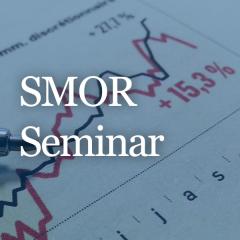Corporate Climate Policy and CEO Age: Age Matters
Speaker: Akihiro Omura
Affiliation: Griffith University
Abstract
Addressing climate change will take decades to resolve and, in this manner, it is a generational problem where the resolution will not only rely on governmental frameworks and company strategies, but also leaders of now and leaders yet to emerge. In this context, climate change is a risk now and into the future. However, generally as individuals age their risk aversion increases, and also due to the ultimate certainty of death they are less likely to see that much of the future. Consequently, we hypothesized that as the age of a CEO increases, the less likely their company is to engage in greenhouse gas reduction activities. Our global sample indicates that companies that have greenhouse gas emissions targets and more generally positive environmental policies are negatively correlated with the CEO’s age. Thus, age matters and the older the CEO, the less likely the company is to have greenhouse gas reduction policies. This result may be because of risk aversion, if climate change is considered a risk, or because more than half of the CEOs in our sample are not likely to be alive in 2050. Hence, they are making short-term decisions and failing to consider generational challenges. Consequently, although our analysis shows that this negative relationship can be moderated by the presence of influential younger executives. Our work points to a challenge, age matters and thus enrolling companies into generational challenges may require a reconsideration of governance structures.
About Statistics, modelling and operations research seminars
Students, staff and visitors to UQ are welcome to attend our regular seminars.
The events are jointly run by our Operations research and Statistics and probability research groups.
The Statistics, modelling and operations research (SMOR) Seminar series seeks to celebrate and disseminate research and developments across the broad spectrum of quantitative sciences. The SMOR series provides a platform for communication of both theoretical and practical developments, as well as interdisciplinary topics relating to applied mathematics and statistics.
Venue
Room: 442 (and via Zoom:
https://uqz.zoom.us/j/85861107130)

